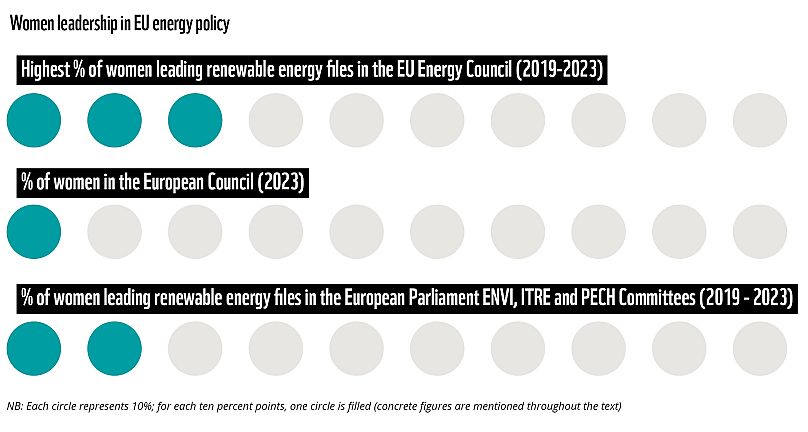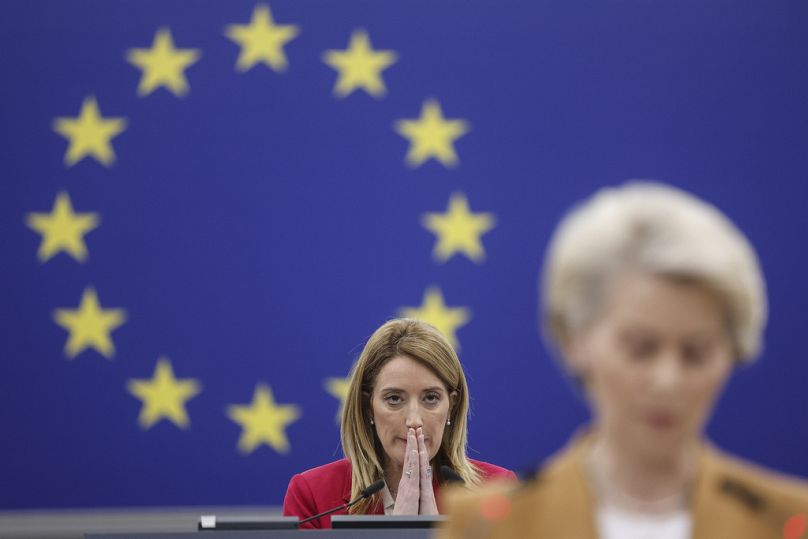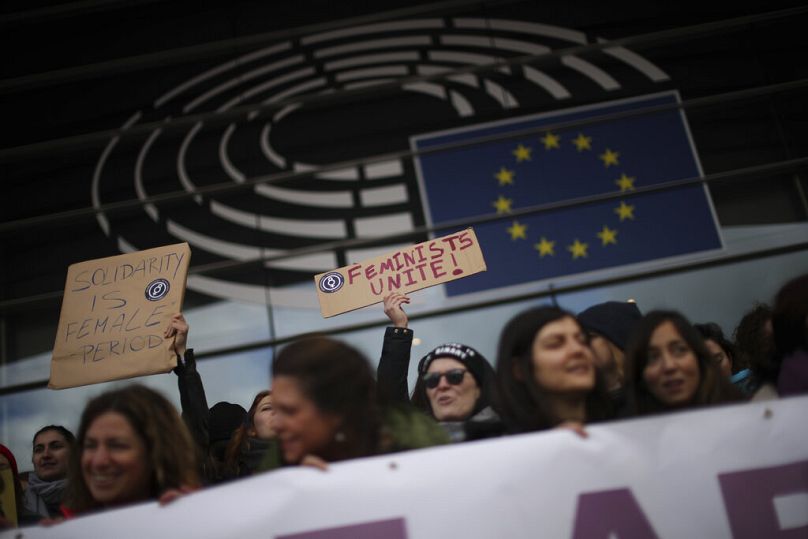Improving gender balance in the EU's fastest expanding maritime industry is crucial to ensure that the fundamental human right of gender equality is upheld in Europe's fight against life-threatening climate change, Helena Rodrigues and Larissa Milo-Dale write.
In April 2023, at the WindEurope annual event in Copenhagen, entering a room filled with men in navy suits seemed to confirm the state of play of sectors “known” for low gender diversity.
While by no means a new anecdote, stories like these are ringing heavier in our ears after so many decades of awareness of the problem, and they fly in the face of initiatives like the EU Gender Equality Strategy.
We can’t help but wonder, to paraphrase Beyoncé, where are the girls “who run the world?”
The renewable energy sector is growing, and women are technically equipped to contribute. Studies show that companies with at least 30% of women engaged in high-level positions consistently perform better at all levels.
Women also now make up half of all EU university graduates, indicating their potential as catalysts for change at decision-making levels. Yet data on gender diversity continue to show women as the odd ones out.
Still no seat at the table
Today, the gender wage gap across the EU energy industry is nearly 20%. Further, women only occupy up to 20% of senior roles in some sub-sectors; in fossil–fuel–related ones, it’s only up to 15%.
At the EU decision-making level, just four women sit in the European Council. In the European Parliament, less than 10% of climate and energy legislative files are led by women, despite women making up 40% of Members of the European Parliament.
Women are actively missing from the discourses that decide both their immediate and long-term socioeconomic realities.
This includes not having an equitable say in the energy mixes available in their communities, and thus the price of energy and how this trickles down into the price of food.
Women are thus also absent from decisions about how to improve their employment opportunities in energy and policy.
Similarly, given that women are more heavily impacted by climate change than men, having an equal voice in decision-making arenas to reduce energy-related emissions is essential to their long-term well-being.
Gender parity for carbon neutrality
Offshore wind is fast becoming a key player in Europe’s blue economy. EU Member States have pledged to reach at least 116 GW by 2030 — a 625% increase from 2022 levels.
And no time is being wasted: just this summer, Germany announced the results of its biggest auction to date, with €12.6 billion pledged for 7 GW of new projects.
However, a transition from fossil fuels to renewables does not necessarily mean a more diverse and equal future for all.
Many of the companies currently leading investment in offshore wind have a background in oil and gas (BP and TotalEnergies won the German auction), a historically male-dominated sector.
And targets set by the industry to improve diversity are woefully inadequate: 30% of women across management levels by 2025 is a far cry from equality.
During the 2023 State of the EU address, European Commission President Ursula von der Leyen emphasised the Commission's commitment to the EU Gender Equality Strategy and announced the development of a "European Wind Power Package".
These are excellent opportunities for policymakers, offshore wind project developers and civil society to ensure gender-responsive investments in new technologies and skills training that will see more women enter the industry.
Building the winds of change
If our leaders are to make good on their energy transition promises, it’s time to deeply challenge the social and cultural norms that affect our perceptions — both women’s and men’s — of what roles women can play.
As long as key stakeholders remain absent from the decision-making table, climate action falls radically short of being truly sustainable.
The EU and its member states should radically increase efforts to promote the entry of more women into the renewable energy sector by improving their involvement in Science, Technology, Engineering and Mathematics (STEM) fields.
Further, gender-balanced stakeholder participation should be legally required in all renewable energy project consultations, as well as in the development of community compensation schemes designed to mitigate any negative impacts of new developments.
Gender equality must also be firmly embedded in all EU renewable energy policy forums.
But, as we’ve seen, the proof lies in the numbers, and we need a different story than the one being told so far.
A common framework to collect gender-specific data is needed to monitor progress towards gender equality across all energy sub-sectors.
The knowledge gained from these datasets will also support the EU in empowering women to actively and effectively participate in the carbon-neutral transition.
It's time to set the EU apart
Proactively raising the roles and profiles of women in the global fight against the climate crisis would set the EU apart, providing a positive example for countries all over the world to follow.
Ultimately, though, the shift to a clean, renewables-based energy system should simply affirm the social values we want for our society, including the fundamental human right of gender equality.
Offshore wind is clearly the EU’s way forward, and women need to be an equal part of it.
Helena Rodrigues is Ocean Policy Officer and Larissa Milo-Dale is Senior Communications Officer at the WWF European Policy Office.
At Euronews, we believe all views matter. Contact us at view@euronews.com to send pitches or submissions and be part of the conversation.














